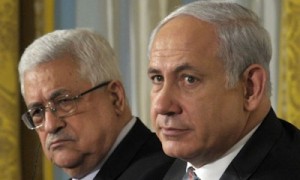 TEHRAN (FNA)- The Iranian foreign ministry described revival of the so-called Palestinian-Israeli 'peace talks' as harmful to the Palestinian nation, and expressed the hope that Palestinian leaders would leave the negotiations.
TEHRAN (FNA)- The Iranian foreign ministry described revival of the so-called Palestinian-Israeli 'peace talks' as harmful to the Palestinian nation, and expressed the hope that Palestinian leaders would leave the negotiations."We believe that the trend of reconciliation will certainly harm the Palestinian people and we hope that the Palestinian leaders won't continue this trend," Foreign Ministry Spokesman Seyed Abbas Araqchi told reporters in Tehran on Tuesday.
He described the so-called peace talks as an Israeli plot to take advantage of the situation, and said, "We have always warned the Palestinian leaders to keep vigilant and not allow the Zionist regime to misuse the situation."
US Secretary of State John Kerry said in July that he finally �convinced Israeli and Palestinian officials to return to the negotiating table.� This is while the prospects for peace appear just as unlikely as before.
Head of the Political Bureau of the Palestinian Hamas movement Khalid Mashaal had underlined in May that Washington's efforts to restore peace talks between Israel and the Palestinians are doomed to fail since the US secretary of state has not presented any solution to the ongoing crisis.
"The US secretary of state has not presented any solution to settle the conflicts between the Palestinians and the Zionist regime and therefore the country's efforts are doomed to fail similar to the past," Mashaal said.
He complained that John Kerry has not adopted a serious approach to settle the Palestinian issue fairly because it has never pressured Israel as the occupier, and has just pressured the Arab sides and the Palestinian authority and presented some useless projects.
The US secretary of state has claimed to be seeking to revive direct peace talks that broke down in 2010 over the issue of Jewish settlement building in East Jerusalem and the West Bank.
He hailed the Arab League's revised Middle-East peace initiative as "a very big step forward".
But Palestinian Prime Minister Ismail Haniyeh at the time rejected the plan, saying outsiders could not decide the fate of the Palestinians.
In the meetings held in early May in Washington, Arab states appeared to soften their 2002 peace plan, acknowledging that Israelis and Palestinians may have to swap land in any eventual peace deal.
Addressing hundreds of worshippers in a Gaza mosque, Haniyeh said it was a concession that other Arabs were not authorized to make.
"The so-called new Arab initiative is rejected by our people, by our nation and no one can accept it," Haniyeh said.
"The initiative contains numerous dangers to our people in the occupied land of 1967, 1948 and to our people in exile."
"To those who speak of land swaps we say: Palestine is not a property, it is not for sale, not for a swap and cannot be traded," Haniyeh said.
Haniyeh said the Palestinian Authority, headed by Palestinian President Mahmoud Abbas, was to blame for inspiring the softer Arab position because it accepted the need for land swaps with Israel.
By Fars News Agency
The Iran Project is not responsible for the content of quoted articles.










